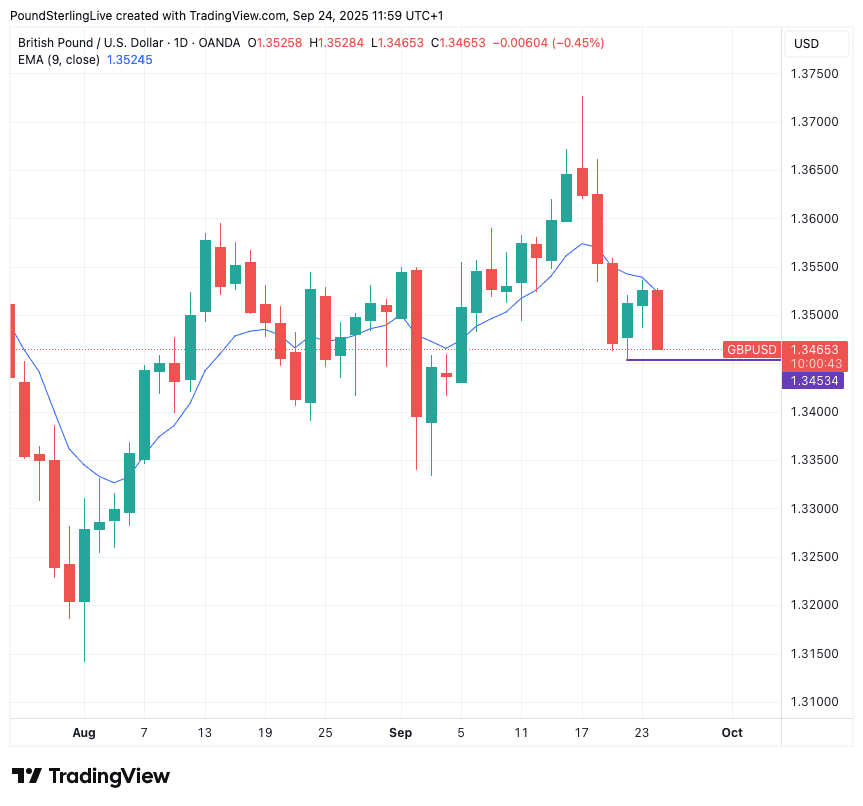
Image: Federal Reserve, public domain.
Pound sterling is liable to further losses against the dollar.
The pound to dollar exchange rate (GBP/USD) is capped by a key moving average that leaves it liable to further losses in the coming days.
Midweek sees a 0.40% daily loss at the time of writing, with the pair at 1.3470, having failed to break above the 9-day exponential moving average at 1.3525 over the course of the past 24 hours.
While below this moving average, the near-term setup favours further weakness and a test of Monday's low at 1.3453 is likely soon ahead of 1.34.
"GBP/USD eased back to near 1.3500 because of the stronger USD," says Kristina Clifton, FX strategist at CBA.
Driving the GBP/USD lower is a broader U.S. Dollar recovery, that is pushing aside most other currencies. "USD recovered against most major currencies. USD can edge higher in the near-term," says Elias Haddad, FX strategist at Brown Brothers Harriman.
A potential trigger for the recovery by USD is commentary by Federal Reserve Chair Jerome Powell in which he gave little indication that he thinks the Fed should speed up the pace at which it cuts intrest rates.
He said overnight that "the downside risks to employment have risen, uncertainty around the path of inflation remains high."
"Chair Powell covered familiar ground but did not signal that he is in a rush to ease policy. Some of the FX market’s intransigence may have faltered this morning with the USD gaining versus G10 FX," says Daragh Maher, senior FX strategist at HSBC.
The dollar recovered strongly last week after the Fed cut interest rates but gave little indication it was in the mood to verify existing market bets for further interest rate reductions in the coming months.
That pushback was spearheaded by Powell who painted the cut as a precautionary one, aimed at offering the labour market a little insurance.
This was not the resounding greenlight to a generous easing cycle the outriders of the pre-Fed dollar selloff were looking for, and Powell's latest comments will entrench that disappointment.
It means the dollar's post-Fed comeback can extend further, which should keep GBP/USD under near-term pressure.

